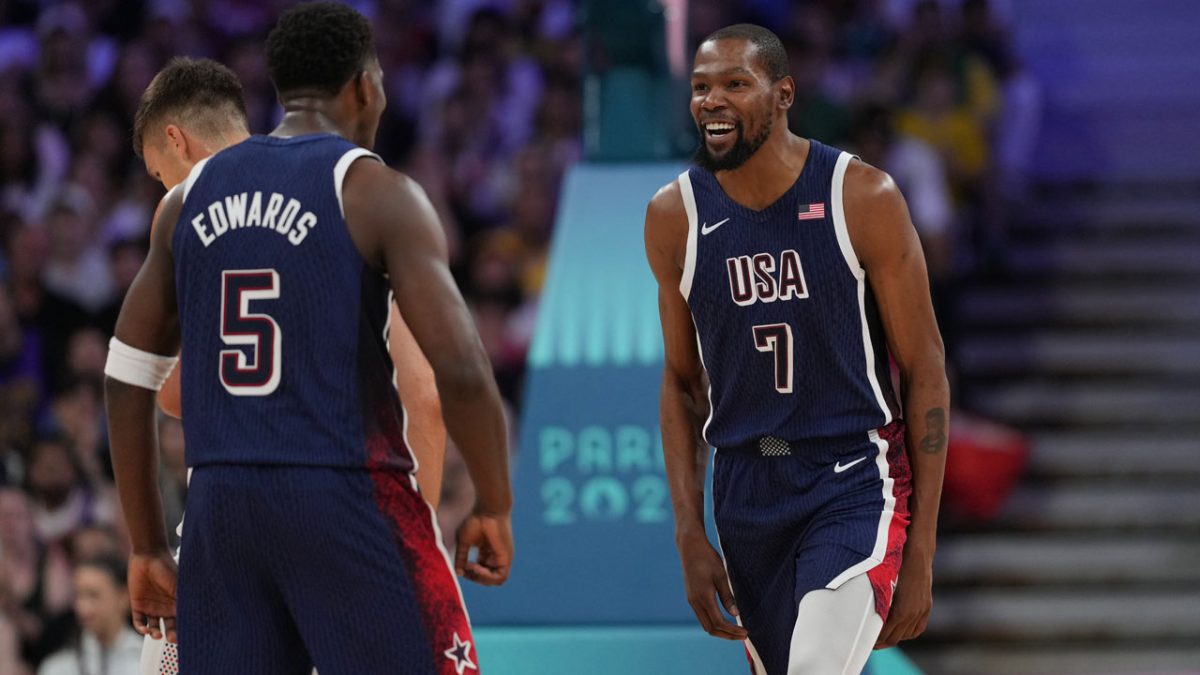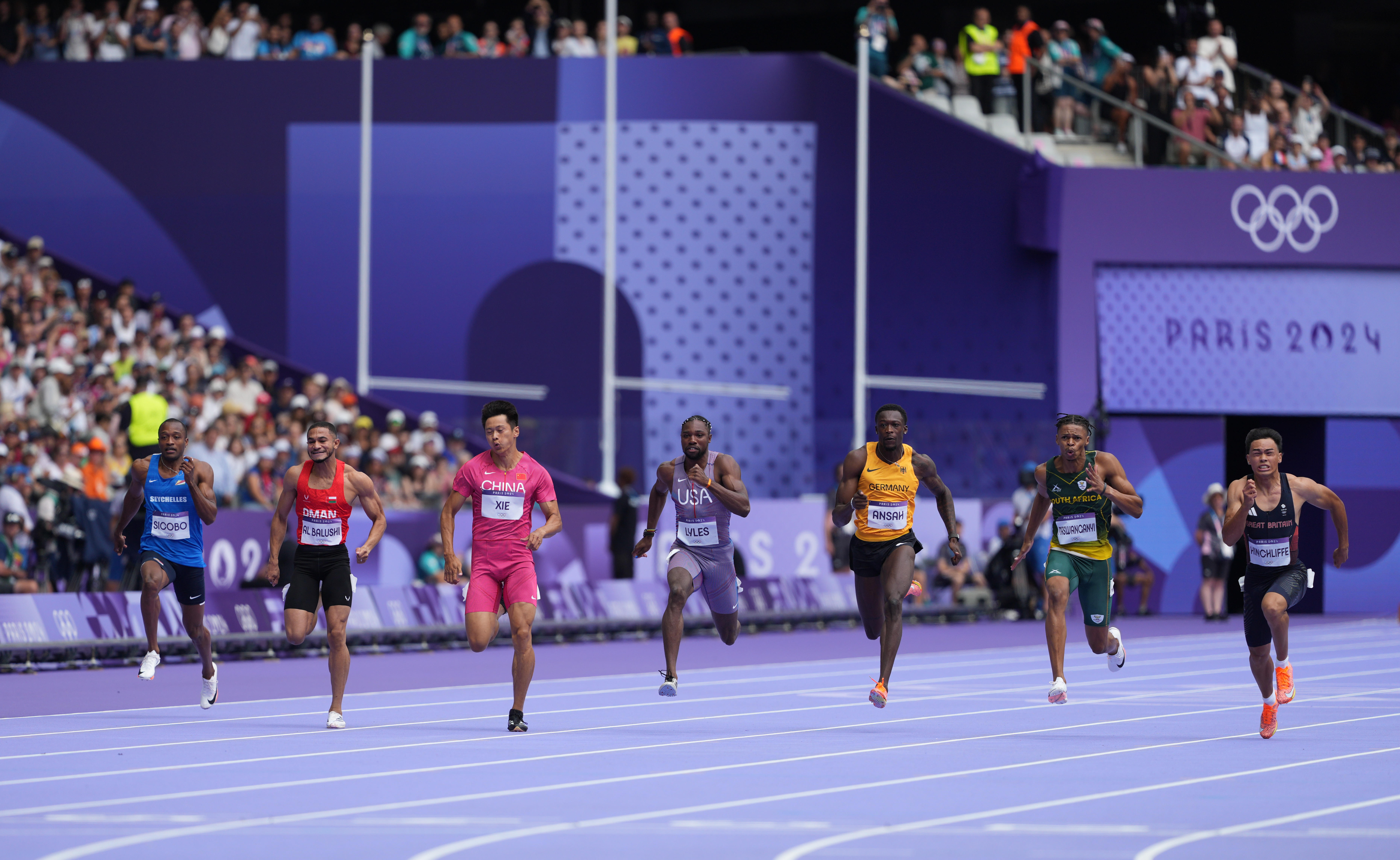Winner. Entertainer. History maker.
By the time the Paris Olympics are over, Noah Lyles hopes to be all of that, and maybe more. The confident 26-year-old sprinter thinks he can win medals, break records and bring the entire sport of track and field onto America's screens for more than 10 days every four years.
Watch NBC6 free wherever you are
These are audacious goals. Winning the 100 and 200 meters and maybe a relay or two would put him in a category with Usain Bolt, Carl Lewis and Michael Johnson, to name a few. Making track popular again — that's a whole different, and more complex, mission, and one Lyles has not shown any fear of tackling.
PARIS OLYMPICS LATEST
Get local news you need to know to start your day with NBC 6's News Headlines newsletter.
“I want to see everybody be able to see the stories we create, the moments that are shared, and the big events that we have,” Lyles said. “And we need personalities to be able to show that. Because just going out there and winning doesn't mean everybody's watching.”
Lyles has a two-pronged strategy. The first part is dominating the sprints. That second part is becoming a must-see personality who transcends both track and sports, the way Bolt did.
Lyles has spent the last year or more laying the groundwork for that second part.
He has opened up his life for two behind-the-scenes documentaries. The first, “Untitled: The Noah Lyles Project,” came out last year. The second, a Netflix production called “SPRINT” that debuted this summer, features Lyles as a main character among a number of Olympians including Sha'Carri Richardson and the stable of Jamaica's fastest women sprinters.
When he's not on TV, Lyles has curated a look outside — or make that coming into — the track.
He is making his “walk-in” to meets an event, arriving in everything from a green sweater with church-window-shaped cut outs, to black leather pants to the tailored navy suit with the signature Adidas stripes down the side of the slacks he wore to U.S. Olympic trials.
There, he was greeted by Snoop Dogg, who carried a briefcase they opened for a big reveal of Lyles' track kit for the 100-meter final.
“It's to keep hype,” Lyles explained. “If you're generating excitement and hype, it's like, ‘What's in the briefcase?' You want to know what's in the briefcase.”
Getting others to follow his lead in a sport filled with solo artists is only part of the mountain Lyles is trying to climb. Another part might have been best illustrated last year when, while articulating his vision for track after completing the 100-200 double at world championships, he made an off-hand comparison between track and the NBA.
“The thing that hurts me the most is I have to watch the NBA finals and they have ‘World Champion’ on their head,” Lyles said. “World champion of what? The United States?”
It was a viral moment that sparked its fair share of social media sniping. That his mere mention of the NBA grabbed more attention in the twitterverse than anything he himself had done on the track that week spoke volumes about the sport's placement in the global pecking order.
According to World Athletics, track is the eighth most popular sport in the United States. The sport's leaders would like to see it crack the top four before the Olympics head to Los Angeles in 2028. Is it too much to ask of one man to lead that resurgence?
“It's been great to watch Noah sort of put himself out there, and understand that's what fans want to see,” said Johnson, the four-time Olympic gold medalist who is starting a new track league designed to bring more eyeballs and money into running.
It seems fitting that Johnson and Lyles are each, in their own way, working toward the same goal.
Two years ago at the world championships in Eugene, Oregon, Johnson grabbed Lyles' hand and held it in the air not long after Lyles ran 19.31, breaking by .01 Johnson's hallowed, 26-year-old American record in the 200 meters.
That was a symbolic, historic moment that also signaled Lyles was completely back — and maybe even on the road to breaking Bolt's world record of 19.19.
In 2021, with the Olympics delayed a year and COVID ravaging the globe in big ways and small, Lyles fell into a deep depression that impacted his performance in Tokyo.
His third-place finish ther e in front of near-empty stands that did not include his family is the last 200-meter race he lost.
He has been open about his mental-health struggles, and when asked earlier this summer what has propelled him on the road he's on now, his answer was: “I mean, number one, I'm not depressed."
“He did a lot of work, anything that he thought would help him,” said Lyles' mom, Keisha Caine Bishop. “He has three therapists. He has a sports psychologist, a family therapist, a trauma therapist. He is really working on that. Not just the physical part, because sometimes, as athletes, the physical part can be the easier part to work with.”
His rediscovered zest for life and sprints opened another door — namely, the 100 meters, which was never his favorite. Beginning in 2023, he doubled down working on his burst from the starting block and his first 60 meters, hoping to become a champion at the shorter distance.
When he did just that at worlds in Budapest last year, he shouted at the TV camera: "They said it couldn’t be done. They said I wasn’t the one. But thank God I am!”
Lyles calls the 200 meters, where he is a three-time world champion, “my wife” and the 100 meters “my mistress." He became a national champion in both earlier this summer at Olympic trials.
Despite his victories, he does not enter Paris as the favorite in the shorter sprint. He will also run in the 4x100 relay and maybe even the 4x400.
The betting favorite in the 100 is Kishane Thompson. The 23-year-old Jamaican newcomer's 9.77 at that country's national championships is the fastest time this year — .04 faster than Lyles' best time, which he ran just last weekend in London.
Thompson has never been on this big a stage. Lyles has.
In some ways, that sets up perfectly for the kind of drama this brash star-in-the-making is trying to produce.
“I think Noah is already the ‘next big thing,’” said Ato Boldon, the four-time Olympic medalist who covers track for NBC.
Big enough to bring his entire sport along for the ride? As is always the case in track, time will tell.





